Teaching at Phorms Munich secondary school is based on the curriculum of the Free State of Bavaria. As an IB World School, we also offer our Abitur graduates the opportunity to further deepen their learning experiences and expand their qualifications. Lessons take place as part of a compulsory full-day programme and are usually divided into double lessons.
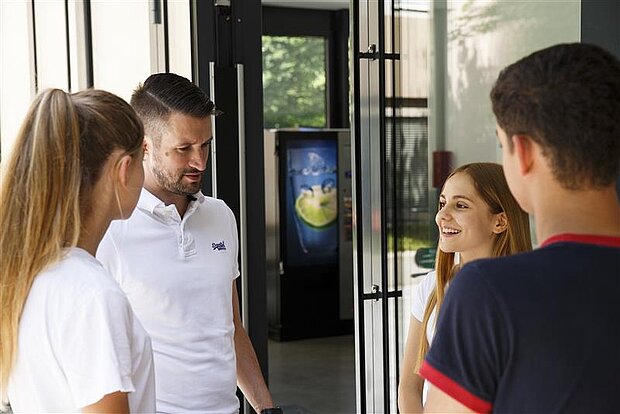
Through the immersion method, our students grow naturally into both languages. Native-speaking teachers bring subjects to life in authentic and practical ways, so that language is experienced directly, both in the classroom and in everyday school life. This approach not only strengthens language skills but also fosters a deep understanding of complex content and cultural perspectives, all in a playful and natural way.
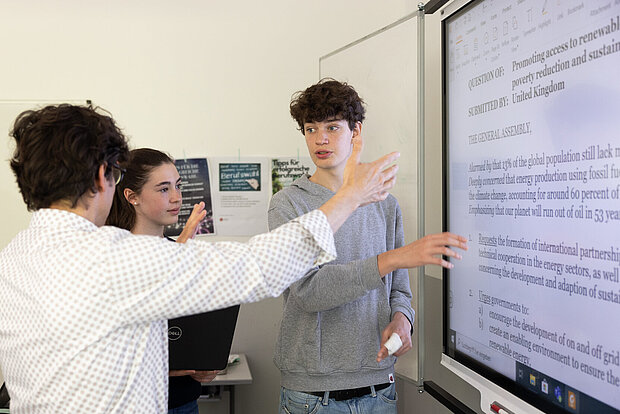
Approximately 40% of our lessons in lower and middle school are taught in English, primarily in mathematics, science, music and art.
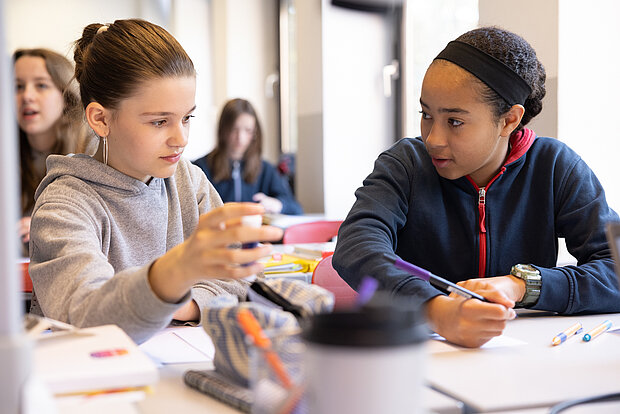
English is officially the first foreign language for our students from Year 5 onwards. However, lessons are adapted to the fact that most of our students have been learning English since Year 1 and are therefore well ahead of the curriculum. For students who are new to our school, we provide support: additional instruction if necessary, or small learning groups for English in lower school.
From Year 6 onwards, your child can choose between Latin and French, and in Year 8, Spanish is an additional option when choosing the language stream. For students who come from abroad or from international schools, special arrangements can be made to take into account other languages they have already learned or their existing native languages.
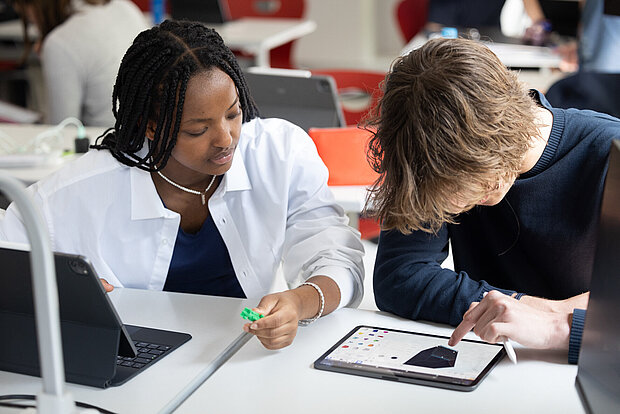
Our elective classes for Years 5 to 8 are integrated into the timetable and offer students the opportunity to pursue their interests or discover new ones without the pressure of formal assessment and grades.
From everyday science and school gardening to creative courses such as 3D animation, coding or sustainability projects, and sports activities such as judo and volleyball. There is truly something for everyone. For creative minds, theatre, musical and music clubs provide a stage to develop talents and achieve great things together. These activities not only promote a wide range of skills, but also strengthen team spirit, self-confidence and the joy of learning.
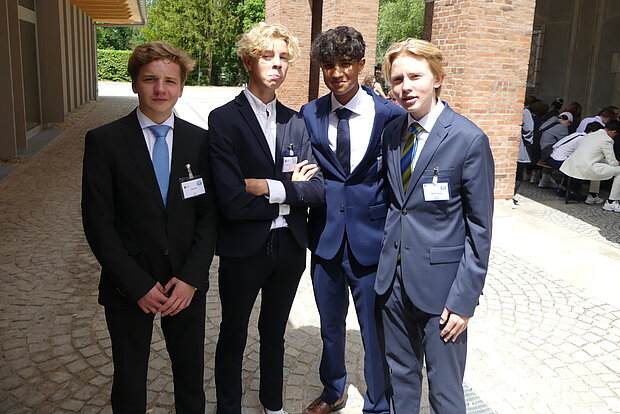
Alongside elective courses, we offer a wide-ranging enrichment programme with challenging activities for motivated students. In STEM, we prepare participants for renowned competitions such as the International Mathematics Olympiad, the International Science Olympiad, the Bolyai Mathematics Competition, STEM Racing (formerly Formula 1 in Schools), and Informatik Biber.
In languages, interested students can work towards officially recognised certificates, including French (DELF), Spanish (DELE), and English (CAE).
We also foster political and social engagement by encouraging participation in programmes such as Model United Nations or the European Competition, giving our students the opportunity to broaden their horizons and grow as active, responsible citizens.
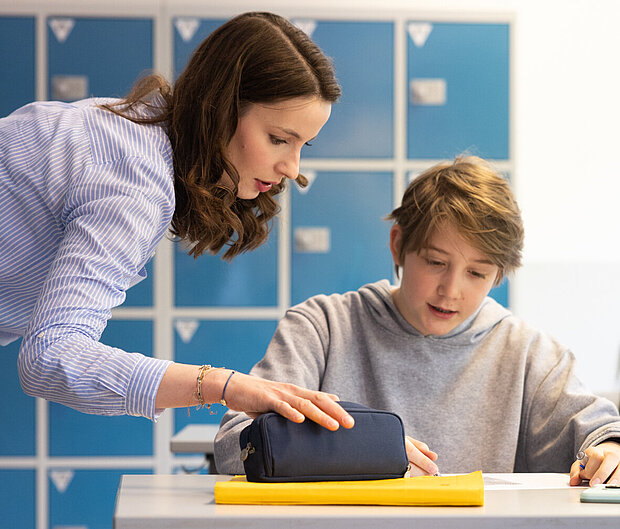
In the core subjects German, Mathematics, French, and Latin, we offer targeted intensive courses from Years 5 to 10 to ensure students receive the best possible support.
Where needed, additional small-group lessons help address specific learning difficulties. To support newcomers to our school, we also provide English support lessons if required, helping every student find their footing quickly.
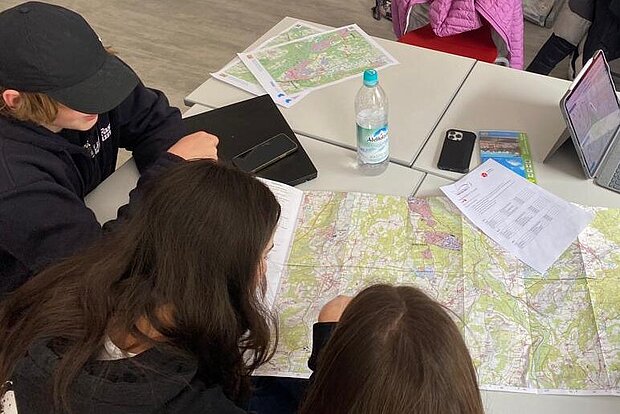
The Duke of Edinburgh’s International Award plays a key role in fostering personal growth in the upper years.
This worldwide youth programme encourages young people to explore their potential and grow as individuals. Through community service, the development of practical and universal skills, sporting activities, and adventurous team expeditions, students are inspired to challenge themselves, discover their strengths, and realise what they are truly capable of achieving.
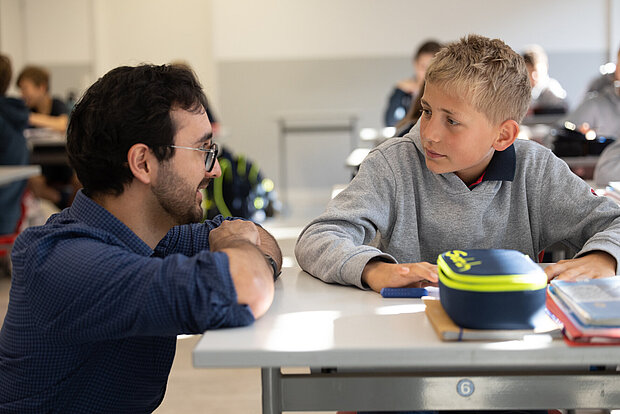
Our Wellbeing Coordinator and school psychologist provide guidance during the particularly sensitive phase of adolescence, complemented by a social skills curriculum delivered by class teachers during Class Teacher Time (CTT). With a respectful, supportive environment and a zero-tolerance policy towards bullying, we ensure that every student feels safe and valued – essential for flourishing academically and socially.
From Years 8 to 10, our mentoring programme offers additional support for personal and academic development. Alongside their class teacher, students can choose a second trusted adult from the school community to meet with regularly as a personal mentor.
Year after year, student surveys confirm how comfortable our learners feel at our school and how much they value the individual support provided by teachers. Small class sizes foster strong teacher-student relationships – the best foundation for successful learning.
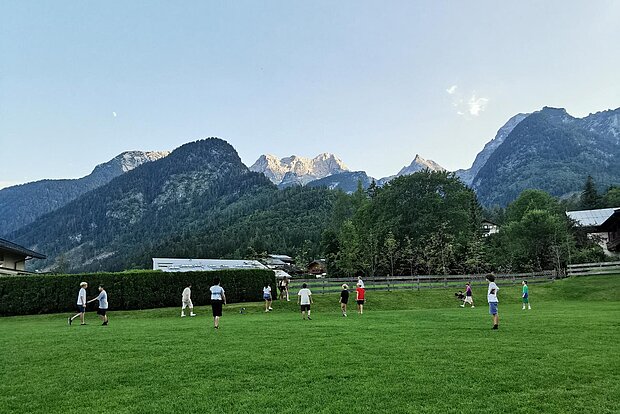
Shared experiences on school trips to exciting destinations strengthen our community and create lasting memories of school life. While the focus is always on educational goals, such as fostering social skills and teamwork, there is also plenty of time for fun and friendship.
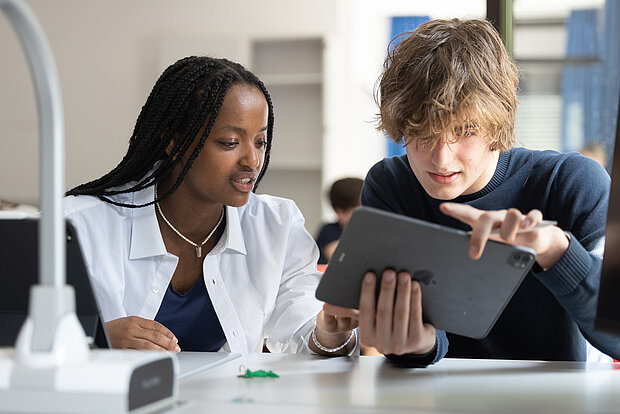
Digital media shape students’ everyday lives, not only in their future careers, but already here and now. Teaching comprehensive media literacy is therefore one of the central tasks of schools. At Phorms Munich Secondary School, we take this responsibility seriously by offering a modern digital learning environment. Our students not only benefit from contemporary digital tools in their lessons but also develop media literacy as a key focus of our ongoing school development.
In doing so, we draw on recognised models and frameworks:
| The House of Digital Education of the German Informatics Society
| The 4C Model
| The Digital Citizenship Concept developed by common sense media
| The Competence Framework for Media Education in Bavarian schools
From Year 5 onwards, we build a solid foundation in applied IT skills. The technological perspective is deepened through compulsory and elective courses in IT, while the 4C key competencies for lifelong learning are embedded across the curriculum.
Particular emphasis is placed on digital citizenship – equipping our students to use the internet and social media with confidence, critical awareness, and responsibility. In this way, we prepare students not only for academic success, but also for life in a digitally networked world.
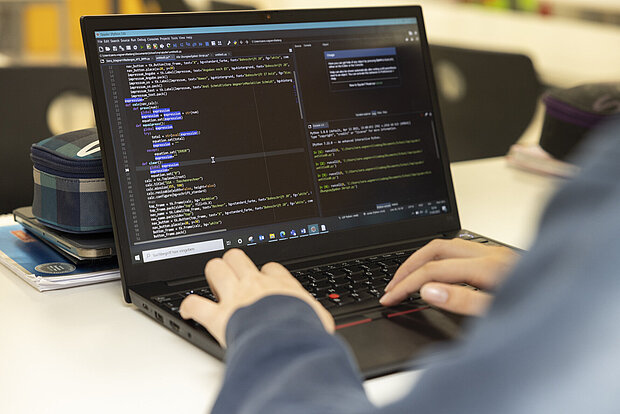
Years 5 – 7
Students use school-owned Windows laptops. Each child is assigned a dedicated device, which remains at school and is stored securely in laptop trolleys in the classrooms.
Years 8 – 10
From Year 8 onwards, students bring their own devices (BYOD), specifically Windows 2-in-1 laptops, which are used both at school and at home. The school updates its device guidelines each year. A uniform device environment ensures smooth classroom use, and compliance with the guidelines is also a prerequisite for financial support through the Bavarian government’s “Digital School of the Future” programme.
Years 11 – 13
In the upper school, students also bring their own devices for use both at school and at home. Unlike in Years 8 – 10, there is no restriction to Windows devices. Our experience shows that older students are sufficiently independent and responsible to manage different digital platforms without disrupting the flow of lessons.
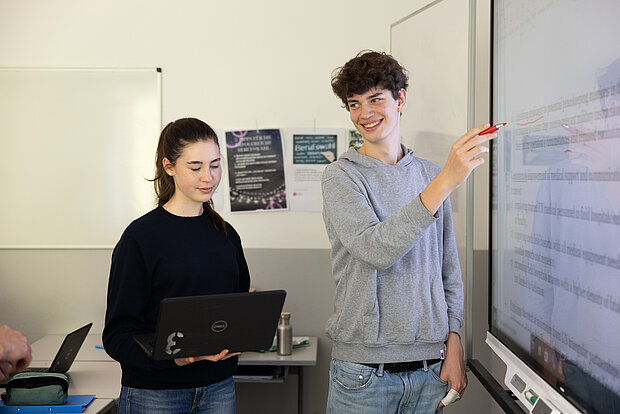
Our modern equipment – including SMART displays in all classrooms and high-speed internet across the campus – allows us to integrate digital media wherever it provides real added value, including the use of artificial intelligence. At the same time, we continue to rely on traditional media such as textbooks where they are more effective. Research shows that students often absorb and retain information better from printed materials, and in many cases digital versions still offer little advantage in terms of interactive or linked content.
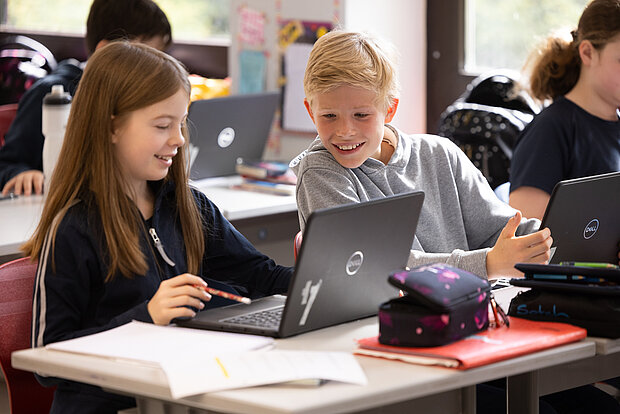
ICT and computer science are firmly embedded in the Bavarian curriculum at several stages: in Year 7 as part of Science and Technology, in Years 9 – 11 within the economics stream as Business Informatics, and finally in Years 12 and 13 as an elective subject open to all students. At this level, students also explore the technical foundations of artificial intelligence.
Beyond the core curriculum, we provide additional opportunities in ICT and computer science through our elective courses and enrichment programme, allowing students to deepen their skills and interests further.